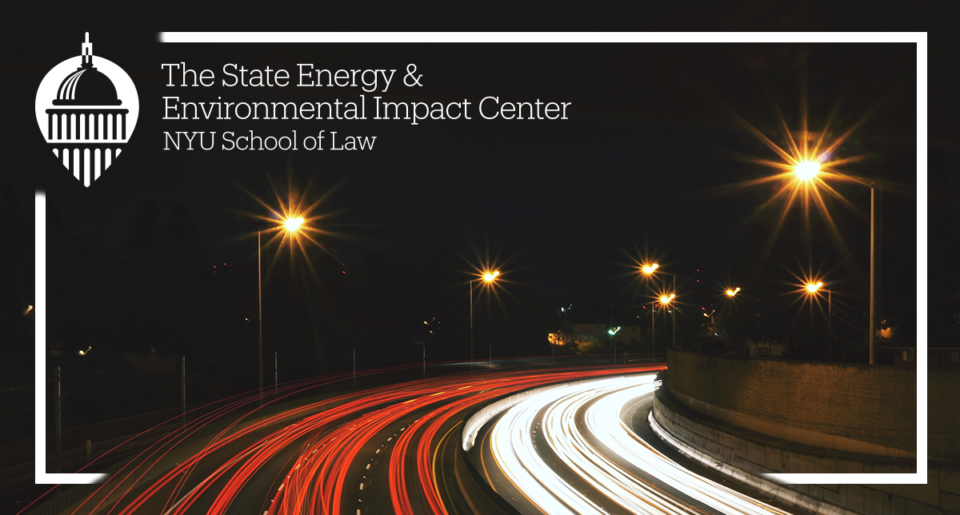Buckle Your Seat Belts For A Battle Royale Around Cars & Coal
David J. Hayes (Past Executive Director) / June 13, 2019

An important reckoning is near. Two of the Trump administration’s most significant anti-environment initiatives are on deck. In the coming weeks, the Environmental Protection Agency (EPA) will put a new Clean Air Act rule in place for the coal industry and, later this summer, it will do the same for the automobile industry.
But rather than ratcheting down on harmful greenhouse gas emissions from the two largest polluting sectors in the United States, the EPA will be green-lighting more emissions, turning the Clean Air Act’s dictate to reduce climate pollution on its head, while selectively ignoring the health and consumer benefits of reduced reliance on fossil fuels. If they stick, the new rules will forego annual reductions of 120 million metric tons in carbon dioxide pollution — digging an ever-deeper hole in the climate fight.
Given the enormous stakes, state attorneys general and NGOs will go all out in challenging these rules in court. Here’s why they have a good chance of winning:
First, the EPA’s forthcoming rules are inconsistent with, and actually undercut, Congress’s instructions to the agency, as spelled out in the law. As courts have confirmed, the Clean Air Act requires the EPA to reduce harmful greenhouse gas emissions. But experts anticipate that the so-called Affordable Clean Energy rule’s light touch on the coal industry will likely delay coal plant retirements, thereby increasing, rather than decreasing, carbon dioxide emissions. Likewise, replacing the Clean Car Rule with a freeze on tailpipe emissions reductions will necessarily have the same result. Plus, overturning the existing car rule and revoking California’s waiver would negate the significant health benefits that otherwise would flow from reduced particulate and smog-causing pollutants, while running afoul of California’s special rights under the Clean Air Act.
Second, the EPA will rely on an untenably skewed cost-benefit analysis to rationalize its new rules. As presaged in its proposed rules and subsequent agency pronouncements, the EPA will exaggerate costs to industry, downplay the societal benefits from reduced climate pollution, and write off proven, health-related co-benefits as irrelevant. Courts have shown little patience for such gamesmanship. Failing to acknowledge and evaluate costs and benefits in a straightforward manner is textbook “arbitrary and capricious” agency action.
Third, the EPA will be unable to justify its radical change in direction and explain away the robust administrative record that supported the Clean Power Plan and the Clean Car Rule. This is a particularly acute problem for the car rule which required the EPA and the California Air Resource Board (CARB) to complete a “Mid-Term Evaluation” as a prerequisite for proposing revisions to the original rule.
Before the Trump administration took office, the EPA and CARB completed the required Mid-Term Evaluation and, based on comprehensive expert analyses, concluded that continued, step-wise increases in mileage standards could and should continue to be implemented without adjustment. The Trump administration purported to reverse that prior Mid-Term Evaluation and substitute in its own — based on a thin, breezy memorandum that reads like it was written over a weekend.
State attorneys general filed suit, challenging the purported Mid-Term “do-over” for failing to adhere to basic regulatory and evidentiary requirements. If the lawsuit is successful, the proposed rollback of the car rule will be stopped in its tracks. If it isn’t, an equally high hurdle of explaining away the compelling analysis of costs and benefits that supported the original rule awaits.
While new administrations can depart from existing policy directions by promulgating new rules, they cannot run afoul of statutory mandates or inadequately square new rules with prior, conflicting, evidence-based rulemaking records. A court recently overturned the administration’s first major new replacement rulemaking in the environmental arena (Interior’s coal royalty valuation rule) for precisely these reasons. Similar challenges await the upcoming Affordable Clean Energy replacement rule for the coal industry and the roll back of the Clean Car Rule for the auto industry.
